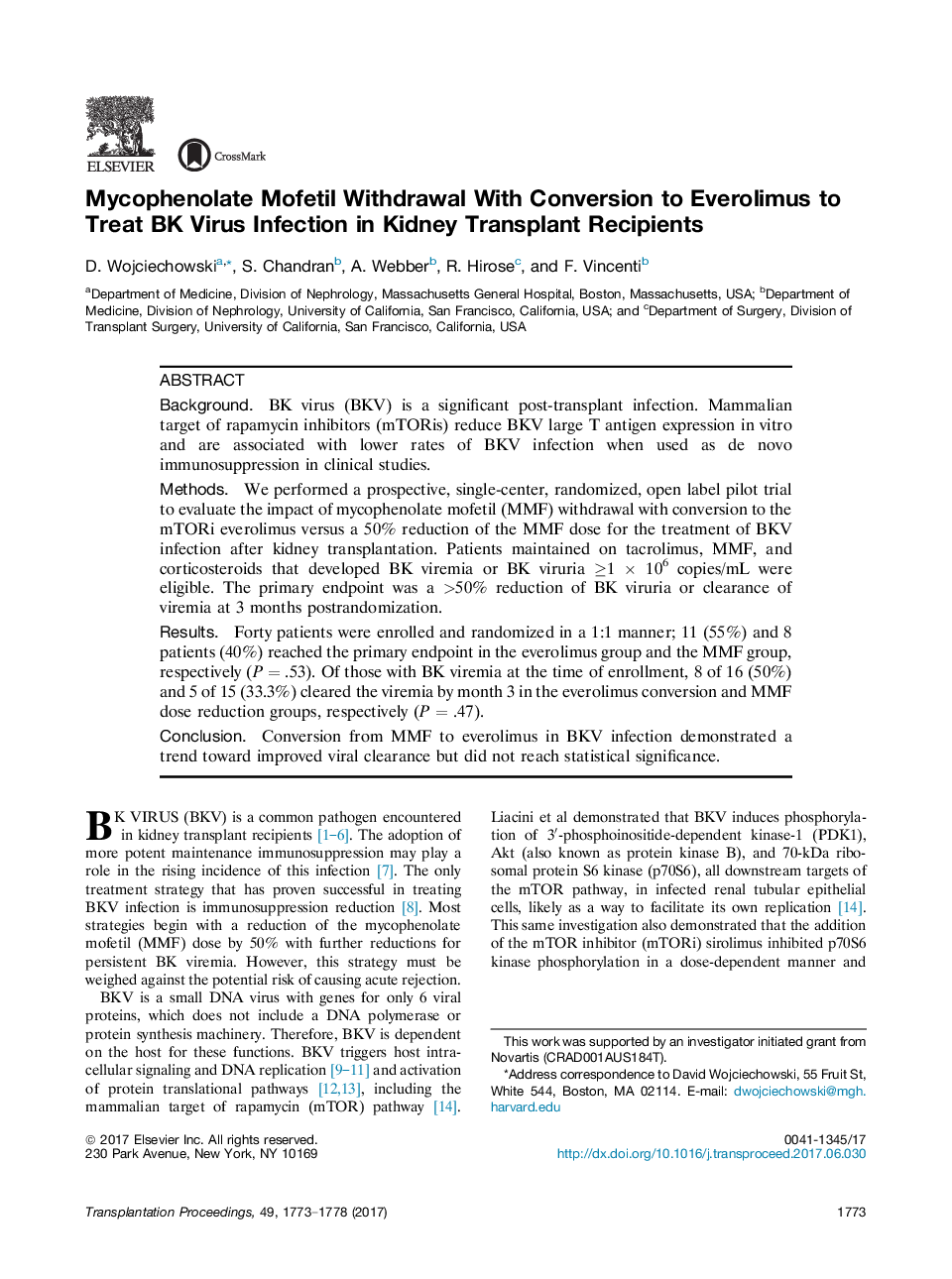| Article ID | Journal | Published Year | Pages | File Type |
|---|---|---|---|---|
| 5728628 | Transplantation Proceedings | 2017 | 6 Pages |
â¢In vitro data suggest an inhibitory effect of mTOR inhibitors on BK virus replication.â¢Conversion to everolimus from MMF versus MMF reduction did not result in improved BK virus clearance at 3 months.â¢At 1 year there was a nonstatistically significant trend toward improved clearance with everolimus conversion.
BackgroundBK virus (BKV) is a significant post-transplant infection. Mammalian target of rapamycin inhibitors (mTORis) reduce BKV large T antigen expression in vitro and are associated with lower rates of BKV infection when used as de novo immunosuppression in clinical studies.MethodsWe performed a prospective, single-center, randomized, open label pilot trial to evaluate the impact of mycophenolate mofetil (MMF) withdrawal with conversion to the mTORi everolimus versus a 50% reduction of the MMF dose for the treatment of BKV infection after kidney transplantation. Patients maintained on tacrolimus, MMF, and corticosteroids that developed BK viremia or BK viruria â¥1 à 106 copies/mL were eligible. The primary endpoint was a >50% reduction of BK viruria or clearance of viremia at 3 months postrandomization.ResultsForty patients were enrolled and randomized in a 1:1 manner; 11 (55%) and 8 patients (40%) reached the primary endpoint in the everolimus group and the MMF group, respectively (P = .53). Of those with BK viremia at the time of enrollment, 8 of 16 (50%) and 5 of 15 (33.3%) cleared the viremia by month 3 in the everolimus conversion and MMF dose reduction groups, respectively (P = .47).ConclusionConversion from MMF to everolimus in BKV infection demonstrated a trend toward improved viral clearance but did not reach statistical significance.
